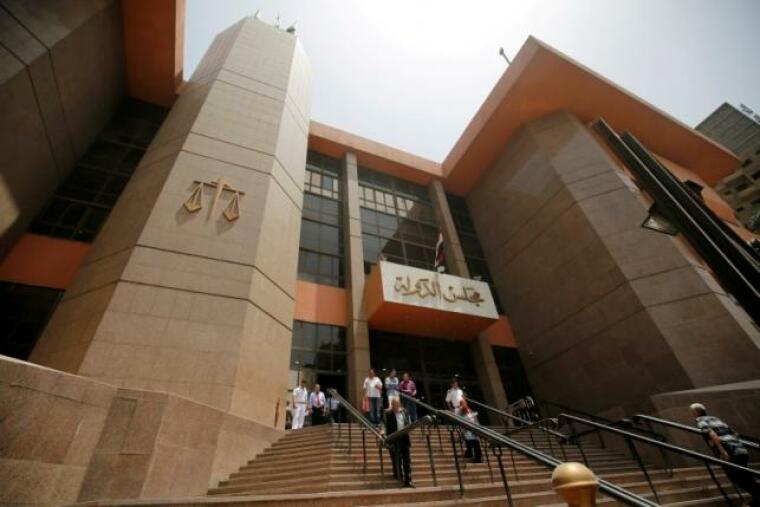Egypt government opposes dropping of blasphemy law
MPs and rights groups supporting the repeal of Egypt's blasphemy law say it's unfairly used to target religious minorities, but the Ministry of Justice say amending it is unconstitutional.
According to Morning Star News, Chancellor Ayman Rafah told the People's Assembly on June 12 that the draft law suggesting the removal of Article 98F is opposed by the administration and that the removal would be in violation of the constitution.

Nadia Henry, Mohamed Zakareya Mohi El-Din and Mona Mounir are the Members of Parliament who submitted the draft law seeking for the elimination of Article 98F, which is Egypt's version of a "blasphemy law." Violating Article 98F can send a person to jail from six months to five years with a fine of 500 to 1,000 Egyptian pounds (US$55 to US$110) if found guilty of criticizing any of the "heavenly religions" namely Islam, Judaism, and Christianity.
However, critics charge the government of unfairly using the blasphemy law against religious minorities.
"Basically they are very sympathetic toward Muslims, but they are not to the other side with Copts," Amnesty International's Mohammad El-Messiry told the publication.
Lawyer and former MP Ehab Ramzy support the accusation that the law is unfair.
"It has become a sword to be used against certain people," said Ramzy. "For example, if you hate your work partner, you can share something on their Facebook and this can be used as evidence of blasphemy to get rid of the person. If you want to get rid of your neighbor, you find a way to accuse them of blasphemy, using an ordinary insult as evidence."
Gatestone Institute, an international policy council and think tank, also denounced Egypt as "becoming more like Pakistan" in that although their blasphemy laws theoretically protect all religions, the council noted that only Christians and moderate Muslims are convicted by the law while Muslims who attack the Christian religion are "regularly let off."
In March, the Pakistani government assured to implement the blasphemy law as it is after hundreds protested in Islamabad against amending it.
Al-Azhar cleric Yehia Ismail, who opposes the removal of the law, argues that protecting religions is necessary in a society.
The cleric told Ahram Online, "When we delete articles that criminalise any kind of demeaning of religion, this will result in us living in a barbarous society."
 Christians don't have to affirm transgenderism, but they can’t express that view at work: tribunal
Christians don't have to affirm transgenderism, but they can’t express that view at work: tribunal Archaeology discovery: Medieval Christian prayer beads found on Holy Island
Archaeology discovery: Medieval Christian prayer beads found on Holy Island Presbyterian Church in America votes to leave National Association of Evangelicals
Presbyterian Church in America votes to leave National Association of Evangelicals Over 50 killed in 'vile and satanic' attack at Nigerian church on Pentecost Sunday
Over 50 killed in 'vile and satanic' attack at Nigerian church on Pentecost Sunday Ukrainian Orthodox Church severs ties with Moscow over Patriarch Kirill's support for Putin's war
Ukrainian Orthodox Church severs ties with Moscow over Patriarch Kirill's support for Putin's war Islamic State kills 20 Nigerian Christians as revenge for US airstrike
Islamic State kills 20 Nigerian Christians as revenge for US airstrike Man who served 33 years in prison for murder leads inmates to Christ
Man who served 33 years in prison for murder leads inmates to Christ


 Nigerian student beaten to death, body burned over ‘blasphemous’ WhatsApp message
Nigerian student beaten to death, body burned over ‘blasphemous’ WhatsApp message 'A new low': World reacts after Hong Kong arrests 90-year-old Cardinal Joseph Zen
'A new low': World reacts after Hong Kong arrests 90-year-old Cardinal Joseph Zen Iran sentences Christian man to 10 years in prison for hosting house church worship gathering
Iran sentences Christian man to 10 years in prison for hosting house church worship gathering French Guyana: Pastor shot dead, church set on fire after meeting delegation of Evangelicals
French Guyana: Pastor shot dead, church set on fire after meeting delegation of Evangelicals ‘Talking Jesus’ report finds only 6% of UK adults identify as practicing Christians
‘Talking Jesus’ report finds only 6% of UK adults identify as practicing Christians Mission Eurasia ministry center blown up in Ukraine, hundreds of Bibles destroyed: 'God will provide'
Mission Eurasia ministry center blown up in Ukraine, hundreds of Bibles destroyed: 'God will provide' Church holds service for first time after ISIS desecrated it 8 years ago
Church holds service for first time after ISIS desecrated it 8 years ago Burger King apologizes for 'offensive campaign' using Jesus' words at the Last Supper
Burger King apologizes for 'offensive campaign' using Jesus' words at the Last Supper Uganda: Muslims abduct teacher, burn him inside mosque for praying in Christ’s name
Uganda: Muslims abduct teacher, burn him inside mosque for praying in Christ’s name